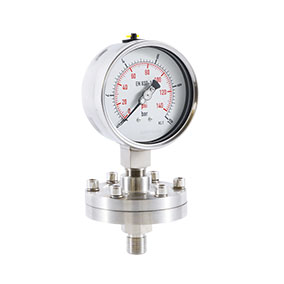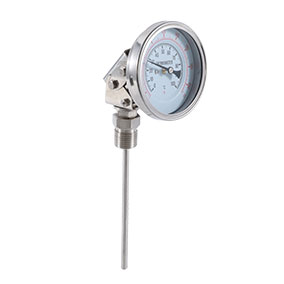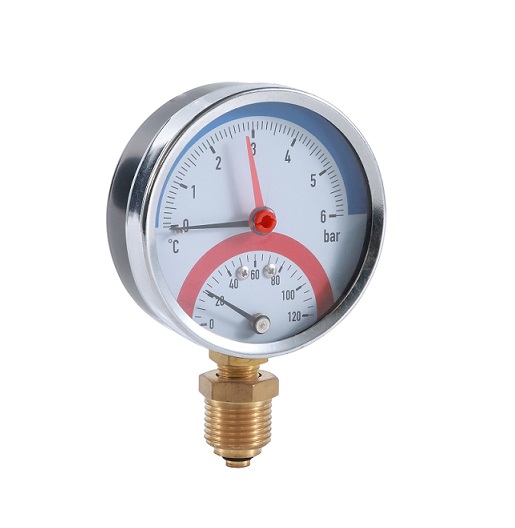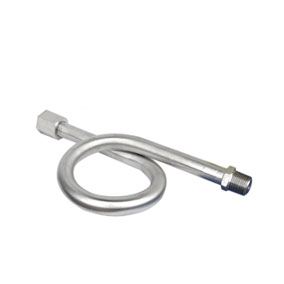What is the main difference between industrial digital thermometers and glass thermometers?
Temperature measurement plays an important role in industrial production, and different types of thermometers are adapted to different usage environments. Industrial digital thermometers and glass thermometers are two common temperature measurement tools. They each have different working principles, accuracy, response speed, and application scenarios. This article will make a detailed comparison of the two, explore their advantages and disadvantages and applicability in industrial environments, and help customers better choose the right thermometer.
Working principle and structure
Digital thermometers use electronic sensors (such as thermocouples, thermistors, etc.) to sense temperature and display temperature information through digital displays. The working principle of digital thermometers is to convert signals into digital form through changes in electrical signals caused by temperature changes for users to read.
Glass thermometers usually use liquids such as mercury or alcohol as temperature measurement media. Liquids expand or contract with temperature changes, resulting in changes in the height of the liquid column. Users judge the temperature based on the changes in the liquid column. This type of thermometer has a simple structure, but a more traditional working principle.
Accuracy and response speed
Industrial environments require high accuracy and response speed for temperature instruments, and digital thermometers usually have higher accuracy and faster response time. Since the sensor of a digital thermometer can sense temperature changes in real time, it can display the results of temperature changes almost instantly. Therefore, it is more suitable for industrial scenarios that require fast response, such as precision manufacturing and high-temperature experiments.
In contrast, glass thermometers have relatively low accuracy and a slow liquid expansion process, resulting in a slow response speed. In industrial environments with large high temperature fluctuations, the performance of glass thermometers is relatively lagging and cannot reflect temperature changes in real time.
Safety
Digital thermometers do not contain toxic substances and are usually protected by a sturdy plastic shell, making them safer to use. Glass thermometers, especially mercury thermometers, have potential safety risks. Mercury is toxic, and if the glass tube breaks, mercury leakage will cause harm to the environment and human health, so more caution is required.
Durability and convenience
Industrial digital thermometers are highly durable, and are designed with shock resistance, waterproofness, dustproofness and other characteristics in mind, and can work stably for a long time in harsh environments. Most digital thermometers also have functions such as automatic shutdown and temperature memory, making the use process more convenient.
Straight Glass thermometers are not suitable for use in high temperature or high vibration environments due to their fragile structure and easy breakage. Although glass thermometers are low in cost, their fragility limits their application in some industrial scenarios.
Application scenarios
Digital thermometers are widely used in modern industry due to their high precision, quick response and safety. In particular, digital thermometers play an important role in industries with strict temperature control requirements such as pharmaceuticals, food processing, chemical experiments and equipment monitoring.
Glass thermometers are more used in some occasions with lower temperature accuracy requirements, such as home and some laboratory environments. However, with the continuous improvement of industrial demand, the application scenarios of glass thermometers are gradually replaced by digital thermometers.
Industrial digital thermometers have become the first choice for many high-standard industrial environments with their high precision, quick response and safety, while glass thermometers have gradually been replaced by digital thermometers due to their fragility and low accuracy. According to specific application requirements, choosing the right thermometer is crucial to ensure temperature control during production. We hope that every customer can find products that suit them best at Ma anshan Exact Instrument Co., Ltd.




